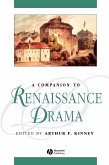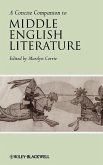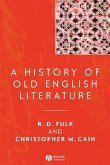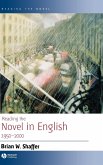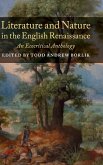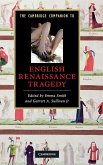This guide provides students with the historical, literary and theatrical contexts they need to make sense of English Renaissance drama. The book considers the London theatrical culture which took shape in the 1570s and came to an end in 1642, emphasising plays that can be read in modern editions and seen in modern productions. Shakespeare's plays appear as a vital but not dominating component of this repertoire. The opening section reviews the historical conditions in which Renaissance plays were written and performed, tracing the opposing influences of patronage and the market, the Court and the City. The next section surveys the various languages out of which plays were made, showing how discourses such as history, satire or love were taken up and dramatized. Then a series of short biographies describes the lives of the best-known playwrights of the period. A fourth section provides analyses of over twenty specific scripts, showing what makes them interesting and what critical questions they provoke. Finally, the author links ideological concerns with dramatic practice by considering things that are typically enacted on the early modern stage, such as cuckolding, flattering, swaggering, going mad, and rising from the dead.
"A book surveying the field by introducing as many astwenty-one dramatists and generally considering the Londontheatrical culture between the 1570s and 1642. Among the key textscommented on are two of Shakespeare's tragedies, namelyHamlet ... and King Lear ... .The book is of good use toreaders needing a guide to the historical, literary and theatricalcontexts in which English Renaissance drama took shape."(Year's Work in English Studies, 2008)
"The ideal companion for both students and teachers ofTudor and Stuart plays. I ... was able to use it and recommendit to my students ... .They loved it almost as much as I did.The book features ... excellent, thought-provoking readings ofthe major plays ... and a wonderfully quirky, fascinating, anduseful section on recurring tropes and patterns ... .The majorwriters are represented, and the book will work nicely with theNorton and the Blackwell anthologies ... .I recommend this bookwith the highest praise." (Studies in English Literature1500-1900, Spring 2008)
"...Womack offers insightful critical comments on EnglishRenaissance playwrights, some major plays, and a variety ofcontextual topics...Womack is an astutecritic." (CHOICE)
"Remarkably comprehensive ... a very fine introduction forthe non-specialist." (Touchstone)
"The ideal companion for both students and teachers ofTudor and Stuart plays. I ... was able to use it and recommendit to my students ... .They loved it almost as much as I did.The book features ... excellent, thought-provoking readings ofthe major plays ... and a wonderfully quirky, fascinating, anduseful section on recurring tropes and patterns ... .The majorwriters are represented, and the book will work nicely with theNorton and the Blackwell anthologies ... .I recommend this bookwith the highest praise." (Studies in English Literature1500-1900, Spring 2008)
"...Womack offers insightful critical comments on EnglishRenaissance playwrights, some major plays, and a variety ofcontextual topics...Womack is an astutecritic." (CHOICE)
"Remarkably comprehensive ... a very fine introduction forthe non-specialist." (Touchstone)


